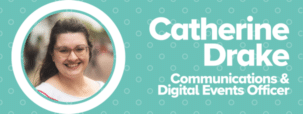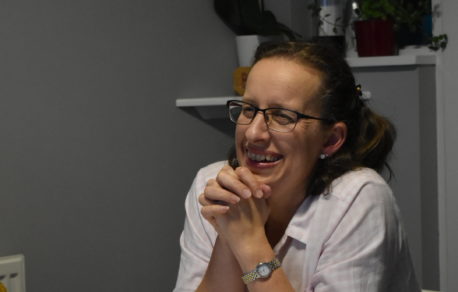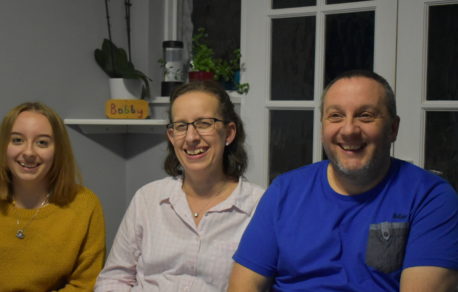
From struggling graduate to thriving role model: my neurodiversity story
Like many neurodiverse people, award-winning engineer Martin has had to overcome constant challenges and barriers in a neurotypical world. Today, he’s passing on his own experience to empower the next generation, so they can reach their full potential and thrive.
But what has his personal neurodiversity journey looked like? This is his inspirational story of how hard work, dedication and resilience can help you achieve your dreams – and what needs to be done to help other neurodiverse engineers make theirs a reality.
Do you find yourself struggling to communicate in social situations, manage your time, or remember important information? These are signs you may be neurodivergent. To find out how we can help you access a fast-tracked diagnosis of a neurodiverse condition, check out the neurodiversity support we offer.
Hi, I’m Martin, a neurodiverse geotechnical engineer based in Kent, England. I’m Dyslexic, Dyspraxic, and Autistic, and an ADHDer! I also have a condition called keratoconus, which affects my sight.
I was first officially diagnosed as neurodivergent whilst studying industrial geology at university. But my obsession with geology and engineering started way before my degree.
Ever since I used to collect minerals and rock samples as a kid, and design mega-structures out of Lego in my bedroom, I’ve been fascinated by the relationship between naturally occurring materials and designed infrastructure.
Over the years, I’ve worked my way up to becoming a chartered geologist and engineer, and I’m currently working as a Principal Geotechnical Engineer at GHD, a global engineering consultancy.
But because of my neurodiversity, getting to where I am today hasn’t always been easy.
My experience with neurodiversity
I consider myself to have certain strengths and qualities that come from my neurodiverse conditions.
For example, I’m a natural big-picture thinker, but I’m also hyper-focused which means I’m good with details and can quickly spot patterns and trends in information. I’m capable of seeing and understanding both sides of an issue too, which comes in handy for risk management.
And I’m always questioning the world around me and making connections between things.
Sometimes, an idea will come to me in the middle of the night, and I’ll have to get up and write it down before I go back to sleep.
I’ve often wondered if this is also characteristic of my neurodivergence.
But there’s been plenty of challenges which have affected me throughout my career too, and sometimes still cause difficulties for me today.
For instance, I’ve always struggled with time management, especially predicting how long certain activities will take – which makes it harder for me to plan my time.
I also get easily stressed, and cope by stimming (I’m currently on blood pressure medication for anxiety).
A big one for me though is processing information. Many neurodivergent people like me learn and understand thing differently to our neurotypical peers. We also often struggle with communication, both verbal and written.
So naturally, compiling reports is difficult for me, but it’s something I have to do fairly frequently in my job, so that can be a real challenge. It’s not the data collection and interpretation I struggle with, but bringing it all together and telling a story from it so that others can understand it too.
I also hate annual appraisals – to me they’re rigid, tick-box exercises, and I can’t think like that. And is anyone really going to always achieve everything they need to achieve to get promoted?
How neurodiversity has played a part in my career
Like a lot of neurodiverse people, these challenges really started being apparent to me when I graduated and entered the world of work.
In fact, my very first job as a post-graduate research assistant didn’t work out for me because of the struggles I faced!
I’m a hard-working and diligent person, and I try to play to my strengths where I can, but a lesson I learned early on is that I need to work somewhere that’s not only technically challenging, but also psychologically safe.
This means I have to be really careful about which companies I choose to work for. If they’re not accommodating of my neurodiversity needs, they’re not worth my time. And if the support isn’t in place, I have to consider moving jobs – which means the business misses out on my neurodiverse talents, and I miss out on rewarding career opportunities.
Thankfully, I’m now more comfortable being open about my neurodiversity with my employers. But this is not the case for a lot of my neurodiverse peers. We have to think harder about which organisations we join, so we feel able to bring our whole selves to work. It can be hard to be misunderstood.
I’ve been misappraised as a high-grade engineer and a low-grade engineer at various points in my career. But at the end of the day, nobody wants to have to fit into someone else’s mould. We don’t want to be something we’re not.
Smashing the neurodiversity glass ceiling
The key issue here is that the dominating view in society is ‘there’s no other way to do things’.
For instance, in my experience, performance management is very top-down rather than bottom-up. You’re expected to work the way everyone wants you to – working to the company’s ‘strengths’ instead of your own.
When I started my career, there was no real concept of psychological wellbeing, and Equality, Diversity and Inclusion wasn’t really talked about.
Dyslexia was thought of as simply issues with reading and writing. And because, as I’ve found, engineering has quite a ‘masculine’ culture, there was often a ‘stiff upper lip’ mentality to just get on with it.
Whilst progress is being made on understanding and accepting neurodiversity today, there are still a lot of ‘glass ceilings’ for neurodiverse people to smash.
And to make matters worse – because of the wider lack of knowledge in society of how neurodiverse people think differently – there are no role models for neurodiverse people in the workplace.
This has created a vicious cycle – neurodiverse people struggle in neurotypical settings; there’s little or no support to help them overcome these struggles; which leads them to struggle even more.
Doing my bit for the neurodiverse community
This is why I do what I do. To provide the role model that neurodiverse people need. To educate employers and managers about supporting neurodiverse employees. And to show neurodiverse people like me what’s possible when we’re set free.
I know what it’s like to try to navigate the transition into work and build a career as a neurodiverse engineer. So if I can pass on my knowledge, insight and experience help aspiring and established engineers in the same situation – supporting the underdogs like me! – I can become a neurodiversity role model for them, and give them the guidance and inspiration I missed out on.
I’m doing my bit for the neurodiverse engineering community in many ways:
- Mentoring young people and chartership candidates (but I learn as much from them as they do from me – I call this ‘360 mentoring’). In this role, I see myself as a facilitator who helps neurodiverse people identify and overcome barriers that are stopping them from reaching their full potential
- I’m a member of my employer’s EDI steering group
- I’ve helped launch an accessibility passport, to support new neurodiverse employees share their strengths and challenges with their colleagues
- I’m a formal role model for Geoscience Access, Inclusion and Attainment GAIA/UKRI (NERC), promoting careers in STEM
- I’m the inaugural chairperson of EqualEngineers’ Neurodiversity Network, helping other neurodiverse engineers to support each other and raise awareness at work and in wider society
- I’ve helped neurodiverse people access reasonable adjustments at work, from software to coaching
- I write regular blogs to help raise awareness of neurodiversity issues (you can read them on my LinkedIn pages)
- I’ve presented to consultancies on neurodiversity as part of Lunch and Learn sessions
- I write articles on neurodiversity for magazines, and I’ve also created a university professors’ toolkit on EDI and engineering ethics
- I’m the Vice President for EDI for the Geological Society
People have often said I must do so much because of hyperactivity from my ADHD!
What we need to do as a society to support neurodiverse people
Of course, I’m only one person. Change needs to happen on a much broader level if neurodiverse people are to feel safe being their complete selves.
We have come a long way, and we talk a lot about awareness – but awareness is only the first step.
In my opinion, we have to get to a place of full acceptance for real change to happen. And this comes back to the need for psychological safety within wider society.
There’s sadly still a lot of intolerance towards neurodiverse people. People don’t fully understand how we think or behave, and form prejudiced views based on popular stereotypes (think Sheldon from The Big Bang Theory). Society as a whole needs to be safer so we can be open and honest about what neurodiversity means for those who live with it, and the very real struggles and challenges they can face.
A big part of this would be having neurodiversity role models in schools, to start building awareness early on. Employers also have a responsibility to put reasonable adjustments in place to help neurodiverse people thrive at work.
My neurodiversity story continues…
I’m proud of the support I’m able to give to neurodiverse people. And it’s nice to receive recognition for the difference I’m making – I’ve been shortlisted for several Equity, Diversity & Inclusion awards, including being selected as winner of Ground Engineering’s Equality, Diversity and Inclusion Champion Award 2023, and included within the Shaw Trust’s Disability Power 100 for 2023.
But I want to go even further, so I can have an even greater impact on people like me.
For example, I’d love to collaborate more with other neurodiverse engineers and build an industry-wide neurodiversity network, so that people can come together to share experiences and ideas.
Part of the problem in my experience is the lack of neurodiversity understanding at the top of organisations. So I’d like to start raising more awareness at this level too.
I’m also considering my own neurodiversity journey. I’m still on a voyage of discovery and learning new things about myself even now I’m in my fifties, and I hope I can continue to find my own personal rewards and strengths through helping others find theirs.
Because at the end of the day, we’re not different or lesser. We just do things differently.
Do you have, or think you may have, a neurodiverse condition such as autism, dyslexia or dyspraxia? Find expert advice, support and resources on our free Differently Wired Hub, including information on managing your condition and getting a diagnosis. Join the hub today.




